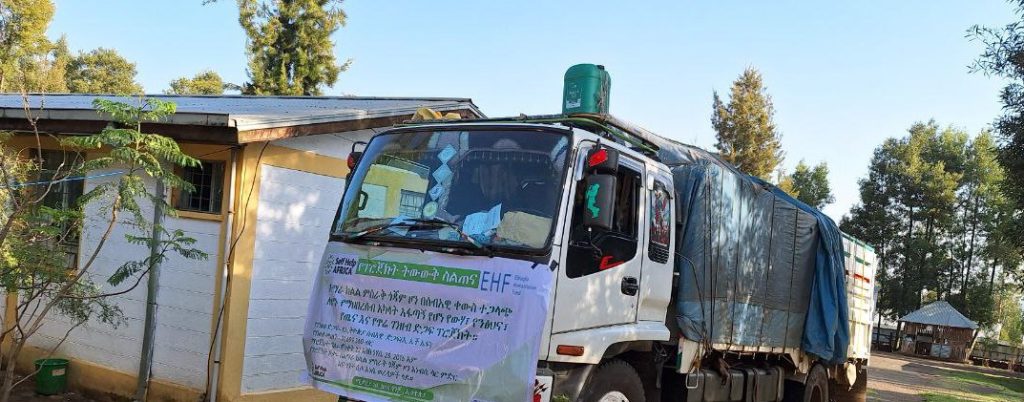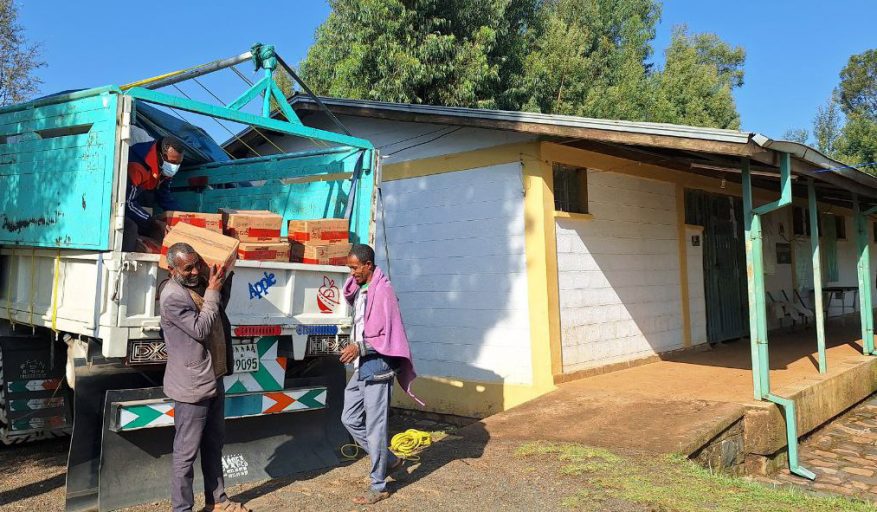A deadly combination of conflict, drought and crop failure has plunged millions of people in Ethiopia into crisis.
And in the far north, millions have been left needing life-saving assistance since intense conflict resulted in the declaration of a State of Emergency in Amhara Region almost a year ago. In a country where more than four million people have been displaced, over 616,000 internally displaced people are situated in the Amhara region, according to the regional Disaster Prevention and Food Security Commission (DPFSC) report from January 2024.
With support from the UN’s Office for the Coordination of Humanitarian Affairs (OCHA), Self Help Africa has been delivering a multi-sector emergency response in East Gojjam, Amhara, including multi-purpose cash transfers and non-food items distribution, and other support to people living here. This would not have been feasible without the dedication of our team actively working in such fragile and demanding security conditions.
SHA’s response covers the rehabilitation of water and sanitation (WASH) services, as well as the distribution of emergency kits that include treatments for cholera and malaria, to health facilities and hospitals.
To date, a ‘last mile’ delivery of lifesaving kits, provided by the World Health Organisation (WHO), UNICEF and regional health bureaus has been distributed to 11 district health institutions and two hospitals in East Gojjam zones.

This work is part of a wide ranging programme of activities that Self Help Africa is implementing in Ethiopia, where conflict and successive climate shocks have pushed over 24 million people into humanitarian need in 2024, according to the UN.
And with the country’s lean season approaching, between July and September, it is estimated that almost 11 million Ethiopians could be critically food insecure this year.
With support from World Food Programme , Self Help Africa have worked to-date with over 15,000 families to kick-start food production by providing climate-resilient seed. Elsewhere in the country, we have distributed 69 tonnes of seed to over 3,000 farmers in a project backed by the World Food Programme (WFP) that extends to 13 districts. In addition, another Self Help Africa project, supported by Irish Aid, is working with 2,000 dairy farming households, allowing them to increase their production and incomes.
“The needs of millions of smallholder farmers, internally displaced persons (IDPs), and host communities, remain critical. Many health facilities have not been able to get emergency supplies and lifesaving kits,” said Self Help Africa Ethiopia Country Director Dinkneh Asfaw. “The work of Self Help Africa – made possible with the support of our donors and implementing partners – is more vital than ever, as access to food, seed inputs, and essential, life-saving supplies, remains limited.”

